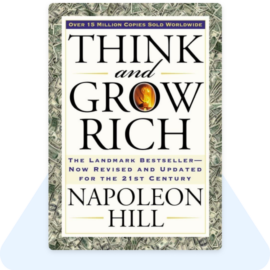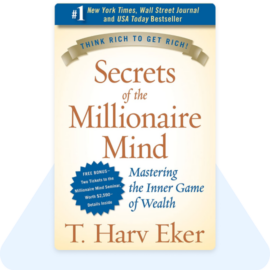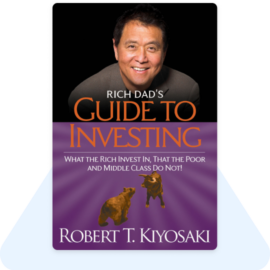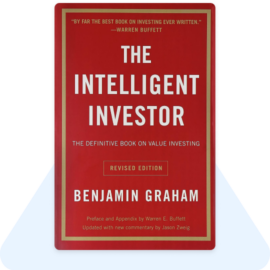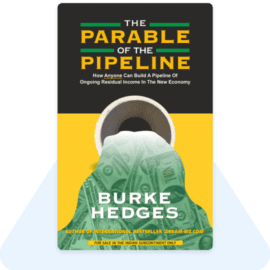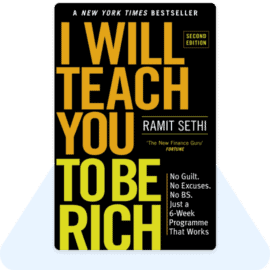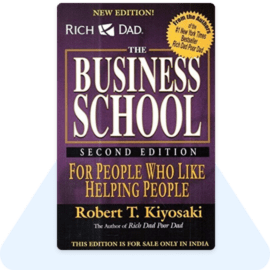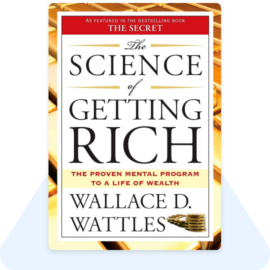About the author – Napoleon Hill was an American author in the new thought movement, one of the earliest producers of the modern genre of personal-success literature, and is widely considered one of the great writers of success.
Introduction
Think And Grow Rich (1937) is among the best-selling books ever. Think and Grow Rich by Napoleon Hill examines the psychological power of thought and the brain in the process of furthering your career for both monetary and personal satisfaction. Initially published in 1937, this is one of the all-time self-help classics and a must-read for investors and entrepreneurs.
Despite the book’s title, this book is not about how to increase your income and become rich. The author’s philosophy can help anyone succeed in their professional life, achieve their aspirations, and attract success, but it’s a must-read for investors and entrepreneurs.
“You are the master of your fate, the captain of your soul.”
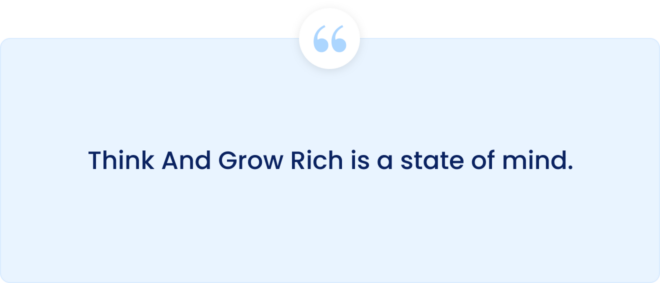
Think And Grow Rich is a state of mind. It exploits the power of thought to manifest solid desires and a definite purpose into reality. Turning your all-consuming obsession (definite purpose) into a reality is a challenging task. However, you will win if the desire is strong and you are willing to raise the stakes. The author projects the following formula:
Desire + Ideas + Plans + Massive Action = Success
To get from where you are to where you want to be, the author highlights: “Never quit. Never give up. Focus. Seek help. Make new connections. Take different approaches. Seek additional resources to help you improve your job search skills. Persist and find people who can help you to achieve your goals.”
Part 1 – Desire
What do you desire above everything else?

A powerful desire to achieve a goal uses a combination of two types of motivation:
- Pull motivations (the outcome of the goal is so favorable that it pulls you towards the plan).
- Push motivations (you are pushed to action because of the negative consequences of not taking action).
The author provides the mindset for five critical areas of desire:
- Career – Going from ‘What do I get?’ to ‘How will I grow?’ requires shifting from ego-driven concerns (title, salary, benefits, etc.) to growth opportunities within the company and position.
- Leading – First, you must follow and learn from an existing leader. How would it affect your career if you became an apprentice to someone at the top of your field you admire?
- Money – This is a series of steps the author suggests for money-based desires.
- Be definite as to the amount of money or type of job.
- Determine precisely what you intend to give in return for the money you desire.
- Establish a definite date when you intend to attain the money you desire.
- Create a definite plan for carrying out your desire and begin at once.
- Read your written statement aloud twice daily.
Failure: Look for lessons within failure and examine them without the emotional attachment of why something has failed. Use failure as a growth opportunity towards more significant accomplishments.
Other People’s Desires: By helping the owner of a company or a manager achieve their goals (as an employee or freelancer), you also advance your own goals because you progressively start excelling at the area of interest (provided this area is aligned with your own goals).
Part 2 – Faith
“Your success or failure is based largely on your self-belief, and a mindset of positive expectancy is the foundation of which your success can be achieved.”
Faith is the starting point of success and the glue that holds it together. As a state of mind, faith can be induced or created through affirmations or repeated instructions to the subconscious mind. By encouraging positive emotions and eliminating negative emotions (such as doubt, denial, and fear), faith can be a valuable tool in various ways:
- It is an antidote for failure.
- By believing in yourself, others will believe in you, too.
- Employers seek successful, confident people who can make a positive impact.
- To summon faith in the form of self-confidence, the author suggests that you sign your name to a statement, which you should be repeating daily, subconsciously influencing your thoughts and actions. This statement should include affirmations that acknowledge certain things about yourself:
- That you have the ability to achieve your purpose.
- That you promise to take action.
- That you understand that your thoughts will gradually transform into a physical reality.
- That you promise to dedicate time to ensuring that these thoughts become real.
- That you understand the importance of self-confidence and promise to spend 10 minutes a day working on this.
- That you will never stop trying to achieve your goals.
- That you are willing to serve others and, in turn, will get others to help you.
Find examples of people where you want to be (career-, money-, influence-wise, you name it), use their standards to keep your faith strong and remind yourself that your desire is possible to attain.
Part 3 – Auto-Suggestion
The Medium For Influencing The Subconscious: The principle of auto-suggestion communicates our desires directly to the subconscious mind in a spirit of unshakable faith.
Through routine repetition of our conscious thoughts and desires to ourselves, we can regain absolute control over the material which reaches our subconscious mind, exercising control over our decisions, feelings, and actions.
Part 4 – Specialised Knowledge
Personal Experience Or Observations: For our desires to translate into a monetary, career, or another kind of success (which we’ve picked in the “Desire” step), we are first required to have specialized knowledge of the service, product, or profession of which we intend to offer in return for fortune.
Notably, this specialized knowledge doesn’t have to be in your possession already. Knowing how to purchase or rent knowledge is a popular way of fulfilling this step. Courses, seminars, books (or summaries!), and industry conferences all improve your odds of acquiring the much-needed specialized knowledge for yourself.
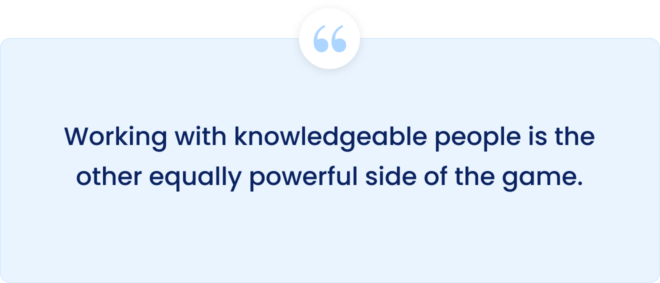
Working with knowledgeable people (“renting knowledge”) is the other – equally powerful – side of the spectrum. Lifelong learning is necessary for an ambitious person to keep up with all the latest developments in their field.
Part 5 – Imagination
The Workshop Of The Mind: Ideas are products of and given a shape or form through imagination. “Humans can create anything they can imagine.” The author mentions two types of fiction.
Synthetic imagination: this faculty includes arranging old concepts, ideas, or plans into new combinations. And
Creative imagination: this faculty is where ideas come from (“infinite intelligence”) and “hunches” and “inspirations are received.
To make the best use of your imagination towards achieving your big goal, develop a list of ideas that will inspire you and allow you to utilize your talents best.
Part 6 – Organised Planning
The Crystallisation Of Desire Into Action: More than simply hoping to succeed at your goal is needed. Every achievement starts with a strong desire, workshopped to reality through imagination, followed by an organized plan.

Every plan is flawed. When you execute your project, you will likely experience a temporary defeat. The best way to approach loss is to accept it as a signal that your plans are not sound. Then, rebuild your dreams and keep pursuing your goal, armed with knowing your previous failures.
Please don’t give up before you reach your goal because quitters do not get to see their long-term plans come to fruition.
Part 7 – Decision
The Mastery Of Procrastination: Without exception, people who fail to succeed reach decisions, if at all, very slowly and change their minds quickly and often. Successful people go decisions promptly and definitely, change their minds slowly. They know what they want and, generally, get it. Definiteness of decision always requires courage. Procrastination, the opposite of judgment, is a common enemy which practically every person must conquer.
Part 8 – Persistence
The Sustained Effort Necessary To Induce Faith: Lack of persistence is one of the significant causes of failure. It can be conquered, but this depends entirely upon the intensity of one’s desire – weak desires bring weak results. The basis of persistence is the power of will, and it’s also influenced by other factors, such as:
Which of the factors above are you lacking, which might be hindering your persistence? On the contrary, a lack of diligence begets the following symptoms:
- Procrastination.
- Lack of interest.
- Indecision.
- Self-satisfaction.
- Indifference.
- Weakness of Desire.
- Willingness to quit.
- Lack of organized plans.
- Wishing instead of willing.
- Searching for shortcuts.
- Fear of criticism.
Four Steps To Develop Persistence
- First, develop a definite purpose backed by a burning desire for its fulfillment.
- Build a definite plan expressed in continuous action.
- Keep out all negative and discouraging influences.
- Stay accountable to people who encourage you to follow your plan and purpose.
Part 9 – Power Of The Mastermind
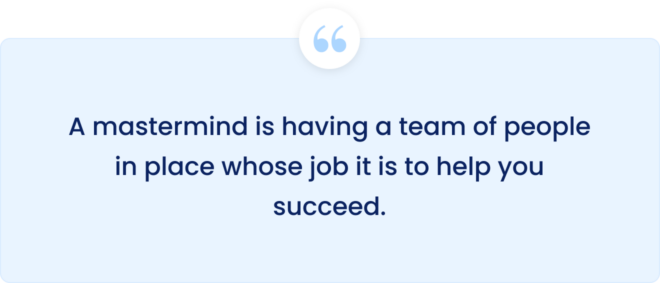
The Driving Force: A mastermind is having a team of people in place whose job it is to help you succeed and carry out your plans. Who could be on your team, and how could you form one in the next 30 days? Only acquire great power and succeed with the power of a mastermind. According to the author:
The goal of a mastermind is to convert knowledge into power by organizing it into definite plans and then translating strategies into action.
Part 10 – Subconscious Mind
The Connecting Link: The subconscious mind is the connecting link between the finite mind of a human and infinite intelligence.
The subconscious mind can be used to transmute your desires into their physical or monetary equivalent. However, if you fail to plant your desires into it, as a result of your neglect, it will feed upon any thoughts that reach it.
To gain control over your subconscious mind, form the habit of applying and using to your advantage the following seven primary positive emotions: Desire, Faith, Love, Sex, Enthusiasm, Romance, and Hope.
A single negative emotion in your mind might be sufficient to destroy all chances of constructive aid from your subconscious. The seven primary negative emotions to avoid are; Fear, Jealousy, Hatred, Revenge, Greed, Superstition, and Anger.
Eventually, the positive emotions will dominate your mind completely so that the negative ones cannot enter.
Part 11 – The Brain
A Broadcasting And Receiving Station For Thought: Every human brain is both a broadcasting and receiving station for the vibration of thought. The subconscious mind is the “sending station” of the brain, through which vibrations of thought are broadcast.
The creative imagination is the “receiving set,” through which the vibrations of thought are picked up from the atmosphere. When stimulated (“stepped up”) to a high rate of vibration, the mind becomes more receptive to the beat of thought.
Vibrations of an exceedingly high rate are the only vibrations picked up and carried, by the ether, from one brain to another.
Part 12 – The Sixth Sense
The Door To The Temple Of Wisdom: The understanding of the sixth sense comes only by meditation, through mind development from within. Once you’ve mastered the sixth sense, you will be able to receive warnings about impending dangers in time to avoid them and get notified of opportunities in time to embrace them.
However, the sixth sense will never function if doubt and fear remain in your mind. They are closely related: indecision crystallizes into doubt, and the two blend to become the result, fear. The 6 basic fears are; Poverty, Criticism, Ill Health, Loss of love, Old age, and Death. However, there’s also a 7th ‘enemy’: exposure to negative influences.
To shield yourself from this enemy, like all people who accumulate great riches, you have to:
- Put your willpower into constant use until you build immunity against negative influences in your mind.
- Deliberately seek the company of people who influence you to think and act from a positive standpoint.
- Use your willpower to gain control over your thoughts and influence your subconscious mind.
- Fear is just a state of mind. It is subject to management and direction.
- Use this knowledge to your advantage.
Conclusion
The book exploits the power of thought to manifest solid desires and a definite purpose into reality. Faith is the glue that holds it all together. Every achievement starts with a strong desire, workshopped to the fact through imagination, followed by an organized plan.
Successful people reach decisions promptly and definitely, changing their minds slowly. Lack of persistence is one of the significant causes of failure. To acquire great power & succeed, you need the help of a mastermind. Fear is just a state of mind. It is subject to control and direction.
Think and Grow Rich Book Review
“Think and Grow Rich” by Napoleon Hill is a timeless self-help classic that provides invaluable insights on achieving success.
Napoleon Hill emphasizes the power of positive thinking, goal setting, and persistence as key factors in attaining wealth and prosperity. With practical techniques and inspiring stories, this book serves as a roadmap for personal development.
It offers actionable steps to overcome obstacles and manifest desires. Whether you’re an aspiring entrepreneur or seeking personal growth, “Think and Grow Rich” offers a wealth of wisdom to unlock your potential and create a prosperous future.
Thank you.
Contents

